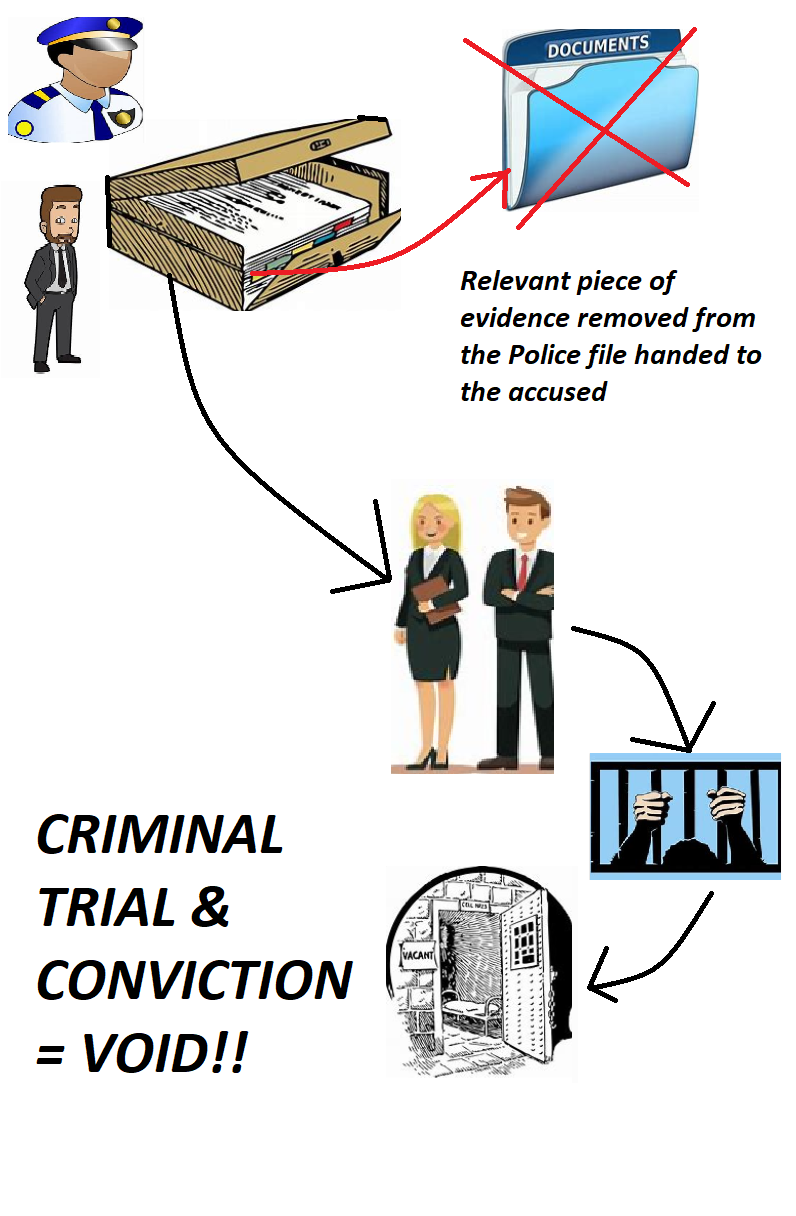Fraser v HMA, 2011 UKSC 24
Citation:Fraser v HMA, 2011 UKSC 24
Rule of thumb:If relevant evidence is not given by the Police to an accused person in the criminal process is a conviction valid? No, if any relevant evidence is withheld then the result is not valid.
Background facts:
The facts of this case were that Nat/Nathan Fraser was accused of the murder of his wife, Arlene Fraser. Arlene Fraser had been reported as being a missing person in April 1998. 9 days after Arlene Fraser went missing, on the 7th of May, 1998, the rings belonging to Arlene Fraser were found by police at a search of the Fraser family home. The body of Arlene Fraser has never been found. The prosecution believed that Nat Fraser had murdered his wife, but Nat Fraser stated that something else must have happened – abduction, murder/abduction by another named man by Nat Fraser or suicide. As part of the prosecution’s case, this evidence of the rings being found was used to make out that Nat Fraser had been to the body in between reporting it missing to get the rings, probably with a view to selling the rings. Nat Fraser’s position on this was that Arlene Fraser did not regularly wear her rings out, and had left them in her jewellery box before going out on the day she disappeared. This was one part of evidence against Nat Fraser in what was massive amount of evidence presented by the prosecution. The prosecution of Nat Fraser did not start until December 2002, and Nat Fraser was convicted in late January, 2003, almost 5 years after Arlene Fraser disappeared. In the period after the case, it was discovered that there were statements from police stating that they had seen the rings in Arelene Fraser’s jewellery box when they first went to the Fraser household after they had gone missing – it appears these statements had been overlooked. Nat Fraser appealed for a retrial on the basis that these had not been provided. The Court of Appeal stated that there should not be a retrial as this was only a extremely small part of the evidence which was provided, and the matter went to the Supreme Court.
Parties argued:
The prosecution/police argued that the evidence was of minor relevance, there was an overwhelming amount of other evidence provided, and that this did not materially affect the outcome of the case, meaning that there was no need for a retrial. The prosecution further argued that this would result in gigantic piles of evidence having to be provided to criminally accused people and their lawyers.
Judgment:
The Court rejected these arguments and held that there had to be a full retrial. The Court held that the prosecution must provide all the relevant evidence which they hold to the defence team of the accused, even relevant evidence which the prosecution do not consider to be important – all contemporaneous evidence which prosecutors have of their investigation must all be provided, and the prosecution must keep a very careful and documented record of all the work they do on the file, or else the result of the case will not be valid - this is a seminal principal of criminal procedural law.

Ratio-decidendi:
'a real possibility that the jury at this trial would have arrived at a different verdict', Lord Hope
Warning: This is not professional legal advice. This is not professional legal education advice. Please obtain professional guidance before embarking on any legal course of action. This is just an interpretation of a Judgment by persons of legal insight & varying levels of legal specialism, experience & expertise. Please read the Judgment yourself and form your own interpretation of it with professional assistance.

